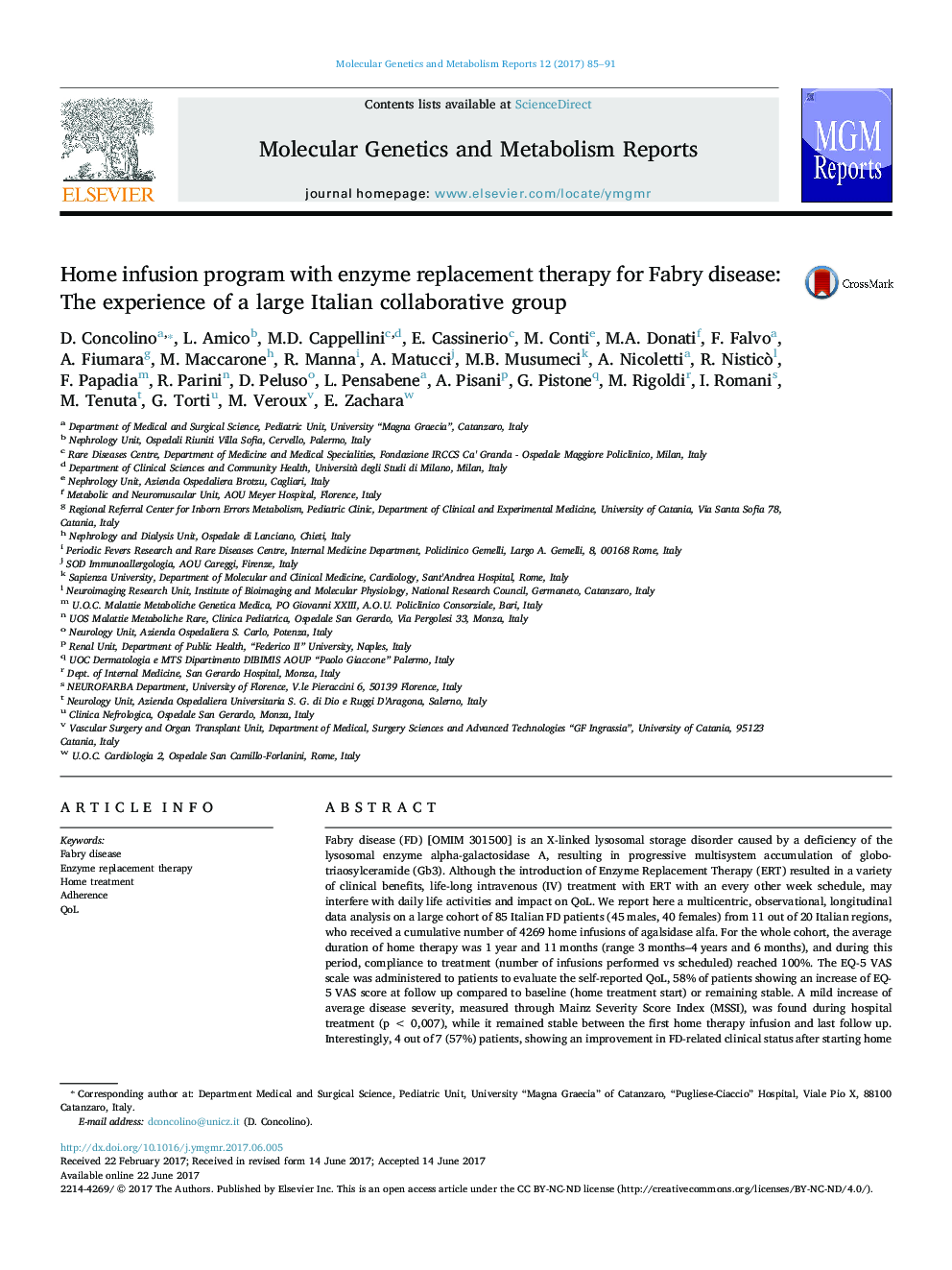| کد مقاله | کد نشریه | سال انتشار | مقاله انگلیسی | نسخه تمام متن |
|---|---|---|---|---|
| 5518529 | 1543974 | 2017 | 7 صفحه PDF | دانلود رایگان |
Fabry disease (FD) [OMIM 301500] is an X-linked lysosomal storage disorder caused by a deficiency of the lysosomal enzyme alpha-galactosidase A, resulting in progressive multisystem accumulation of globotriaosylceramide (Gb3). Although the introduction of Enzyme Replacement Therapy (ERT) resulted in a variety of clinical benefits, life-long intravenous (IV) treatment with ERT with an every other week schedule, may interfere with daily life activities and impact on QoL. We report here a multicentric, observational, longitudinal data analysis on a large cohort of 85 Italian FD patients (45 males, 40 females) from 11 out of 20 Italian regions, who received a cumulative number of 4269 home infusions of agalsidase alfa. For the whole cohort, the average duration of home therapy was 1 year and 11 months (range 3 months-4 years and 6 months), and during this period, compliance to treatment (number of infusions performed vs scheduled) reached 100%. The EQ-5 VAS scale was administered to patients to evaluate the self-reported QoL, 58% of patients showing an increase of EQ-5 VAS score at follow up compared to baseline (home treatment start) or remaining stable. A mild increase of average disease severity, measured through Mainz Severity Score Index (MSSI), was found during hospital treatment (p < 0,007), while it remained stable between the first home therapy infusion and last follow up. Interestingly, 4 out of 7 (57%) patients, showing an improvement in FD-related clinical status after starting home therapy, had previously a sub-optimal compliance to treatment during the period of hospital treatment management. Only 4 adverse non serious reactions (0,093%) were reported totally in 2 patients during home treatment.We conclude that home infusions in eligible patients with FD are safe, contribute to improve treatment compliance and therapeutic clinical outcomes, and may have a positive impact on self-perceived QoL.
Journal: Molecular Genetics and Metabolism Reports - Volume 12, September 2017, Pages 85-91
